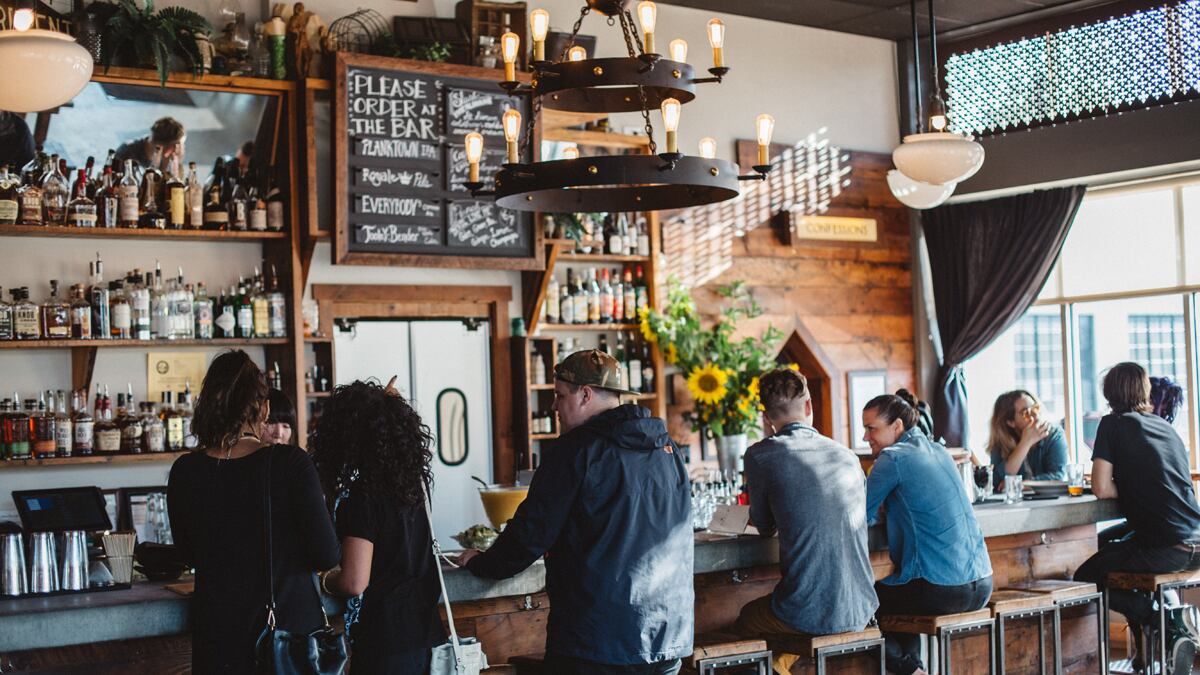As Portland erupts in vociferous battles over cultural appropriation, and alt-right and antifa protesters beat each other bloody in the streets of Portland, a new group wants to teach bars and restaurants how to check their privilege.
Steven Cook, co-owner of Northeast Sandy Boulevard bar Church, founded a new nonprofit called One Portland this month designed to help foster inclusiveness, support social justice and combat sexual violence and coercion in the service industry.
He also wants membership in One Portland to certify a bar as committed to social justice, in a more meaningful way than just putting up a rainbow sticker.
To join One Portland, Cook says, member bars and restaurants need to make a one-year commitment to make monthly donations to social justice organizations partnered with his nonprofit—currently this comprises domestic violence agency Raphael House and socially-responsible business consortium the Main Street Alliance.
In return, social-justice groups would offer their expertise to the bars by holding educational workshops on social justice. Topics would include Portland's racial history, human trafficking, coercion and microaggressions.
These workshops would be mandatory: To remain a member, a business would have to ensure that over 75 percent of the business' employees attend each workshops.
Cook says that even though many in Portland's service industry already hold these values, it's now more important than ever for businesses to make an "explicit, public" commitment to social justice, to show support to groups threatened in the wake of last year's presidential election.
"It's a really frightening time to be a person of color," Cook says, "a really frightening time to be a woman."
Cook sees One Portland membership as a form of certification. A "One Portland" sticker would accredit a business for doing its part to create "welcoming, safe, just community."
"Along with training and workshopped interventions, we also provide resources and assistance and information," Cook tells WW. "And the participating establishments agree to operate within the guidelines of standards set by One Portland. So essentially, affiliation becomes a certification of sorts."
Cook says his bar has already attended a workshop about how to be aware of signs that customers are being abused or coerced by their partners—and how to appropriately respond. He also says that because alcohol is a part of the service industry, bars and restaurants can often be a magnet for problem behaviors.
"There's an environment that exists that if it's left unchecked is a fertile ground for problematic situations to arise," Cook tells WW. "I don't think it's common knowledge that alcohol tends to be one of the most prevalent date-rape drugs—you're thinking of somebody sneaking something into your drink. We want our staff to be aware of that. We want these things to be common knowledge."
Cook says he hopes to bring more social-justice groups into One Portland more bars and restaurants sign up. So far, he's signed up The 1905 jazz club along North Williams Avenue, alongside his own bar Church.
The social-justice workshops will be held on a schedule of once every six months, and each successive workshop would build on what was learned in the last one.
"We want to look at the language we use, our hiring practices," Cook says. "It was an eye-opening thing to me: I looked at a paper on white supremacy culture, the language we use, how we speak to one another and how that can be perceived. That's an important element when we look at inclusion training. I care about these issues. I'm a white person, and I want to know: How can I be the best ally?"
